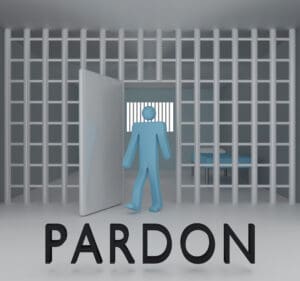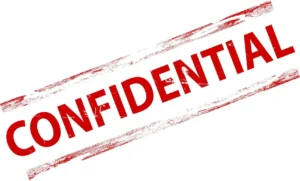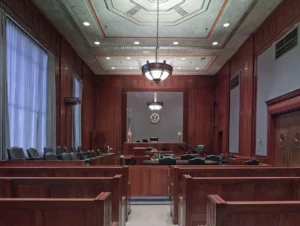With the increasing rise of the Sovereign Citizen Movement, it is crucial to examine into the legal implications and challenges surrounding this controversial ideology. Sovereign citizens believe they are not subject to government authority, often leading to confrontations with law enforcement and challenges to the legal system. Understanding the intricacies of this movement is vital to address the risks it poses to public safety and the legal complexities it presents.
The Ideology of Sovereignty
Historical Influence and Evolution
Historically, the concept of individual sovereignty as seen in the Sovereign Citizen movement can be traced back to various ideologies and movements, including the anti-government sentiments of the Posse Comitatus and the tax protest movements of the 1970s. Over time, these ideas have evolved and coalesced into the modern Sovereign Citizen movement, which rejects the authority of the government and, in extreme cases, considers itself a sovereign nation unto itself.
Core Tenets and Claims
To understand the Sovereign Citizen movement, one must research into its core tenets and claims. Sovereign Citizens believe that they are not subject to the laws of the state and can therefore declare themselves independent of government authority. They reject the legitimacy of institutions such as the police, courts, and even the Constitution, often citing obscure legal doctrines and historical precedents to justify their positions.
Another central claim of the Sovereign Citizen movement is the idea that individuals can free themselves from debt, legal obligations, and even criminal charges by declaring themselves sovereign citizens. This belief has led to dangerous confrontations with law enforcement and the legal system, as some adherents refuse to comply with court orders or recognize the authority of judges.
Legal Foundations and Interpretations
The U.S. Constitution and Sovereign Legal Theory
Some individuals involved in the Sovereign Citizen Movement have a belief in a distorted interpretation of the U.S. Constitution. They often claim that they are not subject to federal laws or taxes and that they can declare themselves exempt from the jurisdiction of state and federal governments. Despite their claims, the U.S. Constitution does not support these beliefs. The Constitution establishes a system of government where laws are enacted by elected representatives and are binding on all citizens.
International Law and Sovereign Citizens
Some sovereign citizens also believe that international law can exempt them from national laws and obligations. However, this is a misconception. International law primarily governs the relationships between states, not individuals within those states. Individuals are subject to the laws of their own country, regardless of any perceived conflicts with international law.
Legal frameworks established by the United Nations and other international bodies do not provide a basis for sovereign citizens to disregard domestic laws. Understanding the limitations of international law in this context is crucial to prevent misinterpretation and potential legal consequences for those who follow sovereign legal theories.
Legal Implications for Governance
Challenges in Law Enforcement Encounters
The Sovereign Citizen Movement poses significant challenges in law enforcement encounters. Individuals who identify as sovereign citizens may refuse to recognize the authority of law enforcement officers and may engage in tactics to delay or obstruct legal proceedings. This can create dangerous situations for both officers and the public, as encounters with sovereign citizens have the potential to escalate quickly.
Courtroom Strategies and Objections
An understanding of courtroom strategies and objections is critical when dealing with cases involving sovereign citizens. Sovereign citizens often attempt to disrupt court proceedings by filing frivolous lawsuits, making nonsensical legal arguments, or refusing to recognize the court’s jurisdiction. Legal professionals must be prepared to address these tactics and ensure that due process is upheld.
As sovereign citizens may represent themselves in court, they may use unconventional legal tactics that can be frustrating and time-consuming. It is imperative for judges and attorneys to remain patient, but firm, in upholding the rule of law and ensuring that courtroom proceedings are conducted fairly and efficiently.
Issues in Taxation and Fraud
Courtroom battles involving taxation and fraud issues with sovereign citizens can be complex and time-consuming. Sovereign citizens often reject the obligation to pay taxes or follow financial regulations, leading to legal disputes with tax authorities and financial institutions. These cases require a thorough understanding of tax law and financial regulations to effectively address the arguments presented by sovereign citizens.
For legal professionals navigating taxation and fraud issues with sovereign citizens, it is crucial to remain vigilant in identifying and addressing fraudulent schemes and tactics that may be employed to evade financial responsibilities. By staying informed and proactive, authorities can work towards upholding the law and protecting the integrity of the legal system.
Impact on Public Safety and Order
Keep in mind that the actions of sovereign citizens may pose significant challenges to public safety and order.
Examples of Violent Confrontations
The sovereign citizen movement has been associated with various instances of violent confrontations with law enforcement officials and government authorities. These encounters can result in harm to both the individuals involved and innocent bystanders, posing a serious threat to public safety. Sovereign citizens’ refusal to adhere to legal authority and their belief in their own immunity from the law can escalate minor incidents into dangerous situations.
Anti-Government Plotting and Terrorism
With a deep-seated distrust of the government and a belief that it is illegitimate, sovereign citizens have been linked to anti-government plotting and even acts of terrorism. These individuals may engage in activities such as stockpiling weapons, planning attacks on government buildings, or engaging in other forms of violent extremism. The sovereign citizen movement’s ideological foundation can fuel radical actions that have the potential to harm not only government institutions but also innocent civilians.
Impact of such anti-government plotting and terrorism from sovereign citizens can lead to significant disruption to public safety and stability, potentially causing harm to individuals and communities. Law enforcement agencies must remain vigilant and proactive in monitoring and addressing any threats posed by individuals associated with the sovereign citizen movement.
Policy Responses and Enforcement Strategies
Legislative Measures Against Sovereign Citizen Activities
Once again, addressing the challenges posed by the Sovereign Citizen movement requires a multi-faceted approach. Legislative measures play a critical role in combating their activities. Governments must enact laws that explicitly define and prohibit the deceptive tactics employed by sovereign citizens to evade legal authorities and responsibilities.
Law Enforcement Training and Preparedness
Citizen law enforcement training and preparedness are crucial components in effectively countering the threats posed by the Sovereign Citizen movement. On one hand, law enforcement agencies must provide specialized training to officers on identifying sovereign citizen tactics and behaviors. For instance, ensuring officers are well-versed in the legal nuances and historical context of sovereign citizen ideology can help them navigate encounters with individuals affiliated with the movement. Strong emphasis should be placed on developing de-escalation techniques and conflict resolution strategies to minimize confrontations and enhance officer safety.
The Movement’s Influence on Society and Culture
Sovereign Citizen Movement in Popular Media
Culture plays a significant role in shaping societal perceptions and attitudes. The Sovereign Citizen Movement has not been exempt from media portrayal, often depicted in popular culture as a fringe group with extreme views on government authority and legality. Shows like “Breaking Bad” and “True Detective” have incorporated elements of sovereign citizen beliefs, showcasing individuals who reject traditional laws and regulations. These portrayals can sometimes sensationalize the movement, painting a one-sided picture that may not accurately represent the diversity within the group.
Social Perspectives on Sovereign Citizen Ideologies
On a social level, the ideologies of the Sovereign Citizen Movement have sparked debates and discussions about the nature of authority and individual rights. Some view sovereign citizens as rebels fighting against oppressive government control, while others see them as dangerous individuals who pose a threat to public safety. The movement’s followers often have deep mistrust of government institutions and believe they have the right to pick and choose which laws to follow. This challenges traditional notions of citizenship and allegiance to the state.
Understanding the social perspectives on sovereign citizen ideologies is crucial for policymakers and law enforcement agencies. While some individuals may be drawn to the movement out of a genuine belief in the principles of freedom and sovereignty, others may exploit these beliefs for criminal activities. It’s important to balance upholding the rule of law with addressing the underlying grievances that drive individuals to adopt these extreme ideologies.
Summing up
Taking this into account, it is crucial for legal professionals and law enforcement agencies to have a deep understanding of the Sovereign Citizen Movement in order to effectively address the legal implications and challenges it poses. By recognizing the beliefs and tactics of sovereign citizens, authorities can better navigate legal encounters with individuals affiliated with the movement and uphold the rule of law.
Furthermore, educating the public about the dangers and misinformation spread by sovereign citizen ideology can help prevent individuals from engaging in illegal activities or falling victim to false legal arguments. With continued vigilance and knowledge of the movement, we can work towards safeguarding the integrity of the legal system and protecting the rights and safety of all individuals within our society.




















